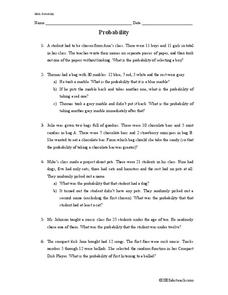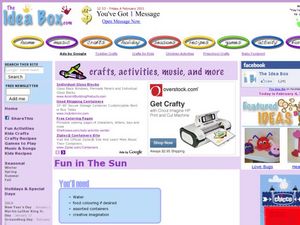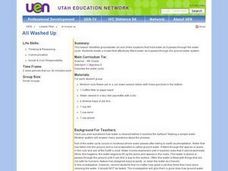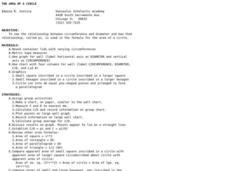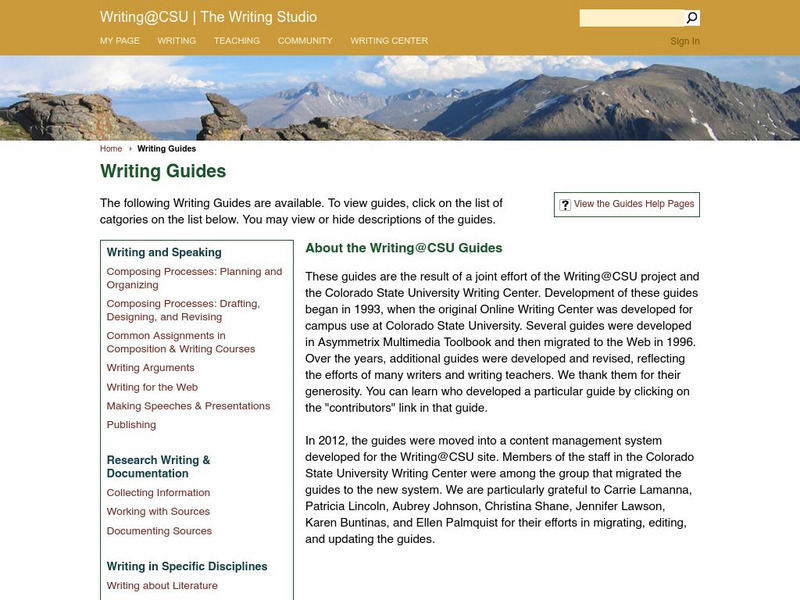Curated OER
Data Analysis, Probability, and Discrete Math: Lesson 6
Eighth graders engage in a activity that is concerned with the concepts surrounding the interpretation of information included in graphs for analysis of data for probability. They examine circle graphs and differentiate the values of...
Curated OER
Bump on the Head
Pupils discuss as a class if they have ever had a bump on the head and started crying and said /a/. They pretend they have hit their head and say the /a/ stretching it out and try a tongue twister containing the sound and write the...
Curated OER
A Baby is Crying...Aaa!
Young scholars explore phonemes. They discuss the phoneme /a/ (short a). Students read and write words containing the phoneme /a/. They identify /a/ in written and spoken words. Young scholars recognize the letter symbol for /a/ and find...
Curated OER
Probability
In this math worksheet, students take the time to attempt solving the six word problems using the concept of probability. The answers are on page 2.
Curated OER
Fun in the Sun
Students freeze colored water. In this art lesson, students take the blocks of ice out of the freezer, put the blocks into a small pool and watch the ice melt.
Curated OER
Worms in a Bottle
Students gain a better understanding of the worm and its role in the recycling of organic materials into simpler forms by constructing worm bottles and observing for 60 to 90 days.
Curated OER
A Thin Slice of Soil
Students examine the importance of soil in the production of what we eat and wear, and analyze the percentages of the earth used for food production. They create their own Pyramids of Life, and construct Dirt Babies out of hosiery, dirt...
Curated OER
Research Lesson on the Dust Bowl
Eleventh graders connect art (photographs) to the historical period and conjecture about conditions during this era in American history, sharing ideas in class discussion. Each student completes a project on a period depicted in one of...
Curated OER
All Washed Up
Fourth graders simulate filtration of water containing contaminates to determine how nature cleans water. They make predictions, report observations, and construct reasonable explanations concerning their outcomes. then connect this to...
Curated OER
Water Quality Issues
In this unit of lessons, students examine water quality issues. They discover ways they can conserve water and practice making drinkable water from water desalination.
Curated OER
Couch Potatoes Around the World#138
Learners identify potato chips as a consumer product and investigate what processes are needed to make the chips. They investigate where the potatoes are grown and harvested before being made into chips at a processing plant. They make a...
Curated OER
Digging through the mess to find the treasure
Young scholars summarize a text selection of their choice. After a brief, written demonstration of summarizing, students read a selection of their choice. With a partner, they summarize what they have read in their own words and create...
Curated OER
Graphing a Healthy Lifestyle
Fifth graders record the amount of time they spend sleeping, attending school, watching T.V., exercising and doing homework. At the end of the week they graph all of their information and discuss how sleep impacts their learning....
Curated OER
THE AREA OF A CIRCLE
Young scholars examine the relationship between circumference and diameter and how to use the formula to find the area of a circle. In this circle lesson students divide into groups and complete an activity.
Shodor Education Foundation
Shodor Interactivate: Circle Graph
This site shows how to set up your own pie chart for papers and projects. Very colorful and it is free.
Colorado State University
Colorado State Writing Center: Charts
The use of charts and graphs can improve your presentations, whether on paper or as visual aids. Here you can read about how to create line, column, bar, pie graphs, and scatterplots. Just follow the links to their respective pages.
Alabama Learning Exchange
Alex: Fun With Seasons!
In this lesson students will learn about proper sequencing of events while also learning about our four seasons. We will be reading the book, The Apple Pie Tree and will be discussing each season prior to our reading. The students will...
PBS
Pbs: The Lowdown: The Math of Trash: Percents and Proportions
Discover how percents and proportions help explain issues like climate change, composting, and zero waste in this video from KQED. In the accompanying classroom activity, students estimate the percentage of various types of trash that...





